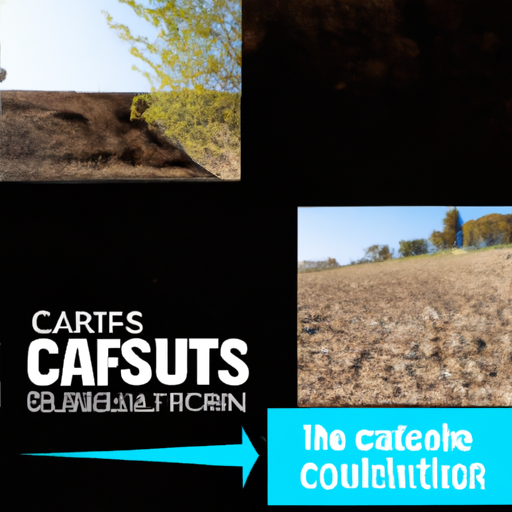
The Importance of Soil Analysis in Cahors Vineyards
Unveiling the Insights of Soil Experts in Cahors
The Importance of Soil Analysis in Cahors Vineyards
When it comes to producing exceptional wines, the role of soil cannot be underestimated. In the picturesque region of Cahors, renowned for its rich and robust Malbec wines, soil analysis plays a crucial role in understanding the unique characteristics of the vineyards. Soil experts in Cahors have been diligently studying the soil composition to unravel the secrets behind the region’s exceptional wines.
Soil analysis is a scientific process that involves examining the physical and chemical properties of the soil. It provides valuable insights into the soil’s fertility, nutrient content, pH levels, and water-holding capacity. These factors directly influence the growth and development of grapevines, ultimately shaping the flavor profile of the wines produced.
In Cahors, the soil is a complex mosaic of different types, each contributing to the distinctiveness of the wines. The region is known for its limestone-rich soils, which are ideal for growing Malbec grapes. Limestone soils have excellent drainage properties, allowing excess water to flow away, preventing waterlogging and root rot. This ensures that the vines receive just the right amount of water, promoting healthy growth and preventing diseases.
Another significant soil type found in Cahors is clay. Clay soils have high water-holding capacity, which can be advantageous during dry periods. The clay retains moisture, providing a reservoir for the vines to draw from when water is scarce. This helps to maintain a consistent water supply to the vines, ensuring their survival during droughts. Additionally, clay soils have good nutrient retention properties, allowing the vines to access essential minerals and trace elements necessary for their growth.
Soil analysis in Cahors goes beyond identifying the soil types present. It delves deeper into understanding the soil’s nutrient content, pH levels, and organic matter content. These factors are crucial in determining the soil’s fertility and its ability to support healthy vine growth. By analyzing the nutrient content, soil experts can identify any deficiencies or excesses that may impact the vines’ health. This information allows vineyard owners to make informed decisions regarding fertilization and soil amendments, ensuring optimal conditions for grape production.
pH levels are another critical aspect of soil analysis. The pH level of the soil affects nutrient availability to the vines. In Cahors, the ideal pH range for grapevines is slightly acidic, between 6 and 7. This range ensures that essential nutrients are readily available to the vines, promoting healthy growth and fruit development. Soil analysis helps vineyard owners monitor and adjust the pH levels if necessary, ensuring the vines receive the optimal conditions for growth.
Organic matter content is also a key consideration in soil analysis. Organic matter provides a source of nutrients and improves soil structure, allowing for better water infiltration and root development. Soil experts in Cahors assess the organic matter content to determine the soil’s overall health and its ability to sustain the vines. This information guides vineyard owners in implementing appropriate soil management practices, such as cover cropping and composting, to enhance soil fertility and structure.
In conclusion, soil analysis plays a vital role in understanding the unique characteristics of the vineyards in Cahors. By examining the soil’s physical and chemical properties, soil experts can unravel the secrets behind the region’s exceptional wines. From identifying the different soil types to assessing nutrient content, pH levels, and organic matter content, soil analysis provides valuable insights that guide vineyard owners in optimizing grape production. With the knowledge gained from soil analysis, vineyards in Cahors can continue to produce exceptional wines that showcase the region’s terroir and delight wine enthusiasts worldwide.
Uncovering the Secrets of Soil Composition in Cahors

Unveiling the Insights of Soil Experts in Cahors
Cahors, a picturesque town in southwestern France, is renowned for its rich history, stunning landscapes, and, of course, its exceptional wines. The region’s unique terroir, characterized by its limestone-rich soil, plays a crucial role in the production of these world-class wines. To truly understand the secrets of soil composition in Cahors, we turn to the insights of soil experts who have dedicated their lives to unraveling the mysteries beneath our feet.
Soil composition is a complex subject that requires a deep understanding of various factors, including geology, climate, and human intervention. In Cahors, the soil is predominantly composed of limestone, a sedimentary rock formed from the remains of marine organisms. This limestone base provides the foundation for the region’s distinct terroir, influencing the flavors and characteristics of the wines produced here.
To gain a deeper understanding of the soil composition in Cahors, experts conduct extensive research and analysis. They examine the physical properties of the soil, such as its texture, structure, and drainage capabilities. They also study the chemical composition, including the presence of essential nutrients and minerals. By combining these findings with data on climate and vineyard management practices, soil experts can paint a comprehensive picture of the terroir’s influence on wine production.
One of the key insights provided by soil experts is the impact of limestone on the acidity of the wines. Limestone has a natural ability to regulate acidity levels, ensuring a balanced and harmonious taste. This characteristic is particularly important in Cahors, where the region’s signature grape variety, Malbec, thrives. The limestone-rich soil helps to maintain the acidity of the grapes, resulting in wines with vibrant flavors and a refreshing finish.
Another crucial aspect of soil composition in Cahors is its ability to retain water. Limestone has excellent drainage properties, allowing excess water to flow through the soil and preventing waterlogging. This is essential for the health of the vines, as excessive moisture can lead to root rot and other diseases. The well-drained soil in Cahors ensures that the vines receive just the right amount of water, promoting healthy growth and optimal grape development.
Soil experts also shed light on the role of microorganisms in the soil. These microscopic organisms, including bacteria and fungi, play a vital role in nutrient cycling and soil fertility. They break down organic matter, releasing essential nutrients that are then absorbed by the vines. In Cahors, the limestone soil provides a favorable environment for these microorganisms, contributing to the overall health and vitality of the vineyards.
Understanding the secrets of soil composition in Cahors is not only fascinating but also essential for the region’s winemakers. Armed with this knowledge, they can make informed decisions about vineyard management practices, such as irrigation, fertilization, and soil amendments. By harnessing the unique characteristics of the soil, winemakers can maximize the potential of their grapes and produce wines that truly reflect the terroir of Cahors.
In conclusion, the insights provided by soil experts in Cahors offer a glimpse into the intricate world beneath our feet. The limestone-rich soil, with its ability to regulate acidity, retain water, and support microorganisms, is the foundation of the region’s exceptional wines. By unraveling the secrets of soil composition, we gain a deeper appreciation for the artistry and science behind winemaking in Cahors.
Expert Tips for Maximizing Soil Health in Cahors Agriculture
Unveiling the Insights of Soil Experts in Cahors
Cahors, a picturesque region in southwestern France, is renowned for its rich agricultural heritage. The fertile soil of this area has been the backbone of its agricultural success for centuries. However, with changing environmental conditions and evolving farming practices, it has become crucial for farmers in Cahors to maximize soil health to ensure sustainable and profitable agriculture.
To shed light on this important topic, we have consulted soil experts in Cahors who have shared their valuable insights and tips for maximizing soil health in the region.
One of the key aspects emphasized by the experts is the importance of soil testing. Soil testing provides farmers with essential information about the nutrient levels, pH balance, and organic matter content of their soil. By understanding these factors, farmers can make informed decisions about the type and quantity of fertilizers and soil amendments required to optimize soil health.
In addition to soil testing, experts stress the significance of crop rotation. Planting a variety of crops in a specific sequence helps break the cycle of pests and diseases that can deplete soil nutrients. By rotating crops, farmers can also enhance soil structure and fertility, as different plants have varying nutrient requirements and root structures.
Another crucial factor highlighted by the experts is the need for organic matter management. Organic matter, such as compost and cover crops, plays a vital role in improving soil structure, water retention, and nutrient availability. By incorporating organic matter into the soil, farmers can enhance its overall health and productivity.
Furthermore, experts emphasize the importance of proper irrigation practices. Over-irrigation can lead to waterlogging, which negatively impacts soil health by reducing oxygen availability to plant roots. On the other hand, under-irrigation can result in drought stress and hinder nutrient uptake. Therefore, farmers in Cahors are advised to adopt efficient irrigation techniques, such as drip irrigation, to ensure optimal soil moisture levels.
Soil erosion is another significant concern in Cahors, given its hilly terrain. Experts recommend implementing erosion control measures, such as contour plowing and terracing, to prevent soil erosion and retain valuable topsoil. These practices help maintain soil structure and prevent nutrient loss, ultimately contributing to improved soil health.
Moreover, experts stress the importance of minimizing the use of synthetic pesticides and herbicides. While these chemicals may provide short-term solutions to pest and weed control, they can have detrimental effects on soil microorganisms and beneficial insects. Integrated pest management techniques, such as biological control and crop rotation, are encouraged to maintain a balanced ecosystem and preserve soil health.
Lastly, experts emphasize the significance of continuous learning and adaptation. Agriculture is a dynamic field, and new research and technologies are constantly emerging. Farmers in Cahors are encouraged to stay updated with the latest advancements in soil health management and adapt their practices accordingly.
In conclusion, maximizing soil health is crucial for sustainable and profitable agriculture in Cahors. Soil testing, crop rotation, organic matter management, efficient irrigation, erosion control, and minimizing chemical inputs are all key factors highlighted by soil experts. By implementing these practices and staying informed about the latest research, farmers in Cahors can ensure the long-term health and productivity of their soil, securing a prosperous future for the region’s agriculture.






